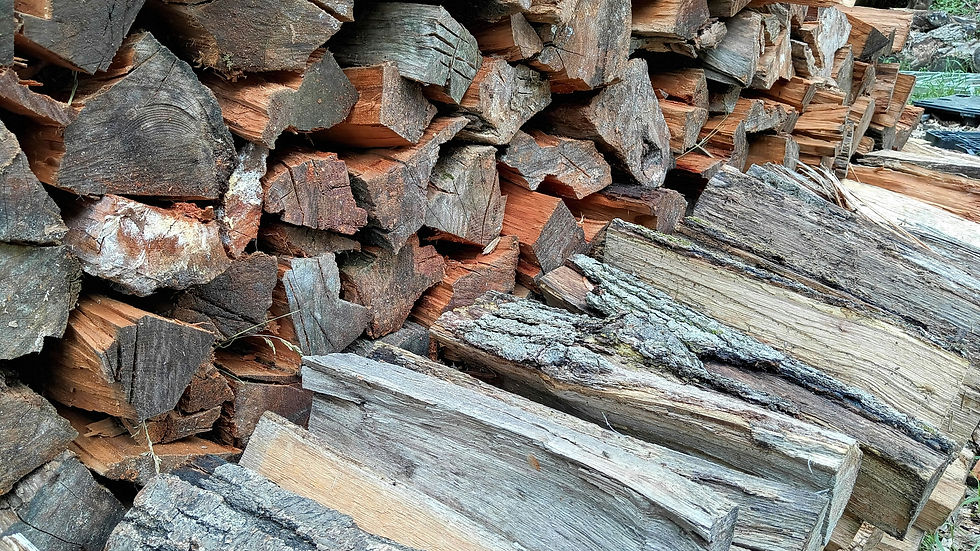Understanding the Essentials of Land Clearing
- Shane

- Oct 26, 2025
- 4 min read
If you’ve got a piece of rural land in the Walla Walla Valley, you probably know how quickly brush and debris can take over. It’s like nature’s way of saying, “Hey, I’m in charge here!” But when you want to reclaim your land, reduce wildfire risks, or just make your property more usable, getting a handle on land clearing is a must. Let’s chat about what you need to know to get started, keep things sustainable, and maybe even turn those pesky trees into something useful.
Why Land Clearing Tips Matter for Your Property
Before you grab a chainsaw or call in the big machines, it’s good to understand why land clearing is more than just chopping down trees and pulling out brush. Done right, it can:
Reduce wildfire risk by removing dry, flammable material.
Improve access for vehicles, trails, or farming.
Enhance the look and usability of your land.
Support local wildlife by managing habitats thoughtfully.
Prevent soil erosion by keeping some vegetation intact.
In the Walla Walla Valley, where wildfires are a real concern, clearing brush and deadwood can be a lifesaver. But it’s not about bulldozing everything. It’s about smart, sustainable clearing that respects the land and its future.

Essential Land Clearing Tips for Rural Property Owners
Alright, now that we know why it’s important, how do you actually do it? Here are some tips that can help you get the job done right:
Plan Your Clearing Area
Walk your property and mark the areas that need clearing. Focus on places where brush is thick, dead trees are a hazard, or where you want to create trails or open space.
Check Local Regulations
Some areas have rules about what you can and can’t clear, especially near waterways or protected habitats. It’s worth a quick call to your county office to avoid surprises.
Use the Right Tools
For small jobs, hand tools like loppers, pruning saws, and chainsaws work well. For bigger areas, you might need a brush mower or even a professional service with heavy equipment.
Instead of burning or hauling away everything, think about how you can reuse the wood. At Rugged Land, trees removed from properties are turned into custom lumber or firewood. It’s a win-win for you and the environment.
Create Firebreaks
Clear a strip of land free of brush and debris around your home or structures. This can slow or stop wildfires from reaching your property.
Maintain Your Land Regularly
Land clearing isn’t a one-time thing. Schedule regular maintenance to keep brush from growing back too thick.

How Much Does It Cost to Clear Land in Eastern Washington?
Since you’re in the Walla Walla Valley, this might be closer to home. Land clearing costs in eastern Washington can vary widely depending on several key factors:
Size of the area
Density of brush and trees
Terrain difficulty and slope
Equipment needed
Disposal or reuse of cleared material
In our region, from the Blue Mountains to the Palouse hills, most land clearing projects range between $600 and $1,500 per acre. Heavier brush, steep terrain, or wildfire mitigation work can increase that cost, while simple grass mowing or light cleanup tends to be on the lower end.
Unlike many areas, eastern Washington’s mix of hawthorn, blackberry, and tall grass presents unique challenges that require tough, specialized equipment. That’s why local expertise matters, understanding the terrain and vegetation can make a big difference in both cost and results.
If you’re curious about pricing or want a tailored estimate, Rugged Land offers free walkthroughs and custom quotes based on your specific property and goals.
Why Choose Sustainable Land Clearing Services?
You might wonder why it matters if the trees and brush you clear get tossed or reused. Here’s the deal:
Environmental Impact: Burning or dumping debris can harm soil and air quality.
Resource Efficiency: Wood is a valuable resource. Turning it into lumber or firewood keeps it in use.
Wildfire Mitigation: Proper disposal reduces fuel for fires.
Community Benefit: Sustainable practices help keep the whole valley safer and greener.
At Rugged Land, the goal is to help you reclaim your land while keeping it healthy and productive. That means no waste, just smart, thoughtful clearing.

Making the Most of Your Cleared Land
Once your land is cleared, what’s next? Here are some ideas to maximize your property’s potential:
Build Trails for hiking, ATV riding, or horseback.
Start a Garden or Orchard in the newly opened space.
Create Firewise Landscaping with fire-resistant plants and defensible space.
Plan Custom Woodworking Projects using lumber from your own trees.
Set Up Outdoor Living Areas like fire pits or picnic spots.
Remember, clearing your land is just the first step. With a little creativity and care, you can turn it into a place you love and feel safe on.
If you’re ready to take the next step, Rugged Land can help. We specialize in land clearing throughout the Walla Walla Valley and surrounding areas, using local knowledge and professional equipment to get the job done right — safely, sustainably, and with wildfire prevention in mind. Your land deserves expert care, and Rugged Land is here to help you reclaim it.




Comments